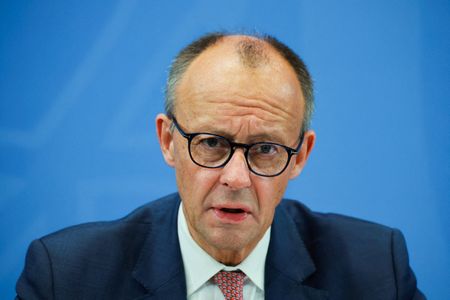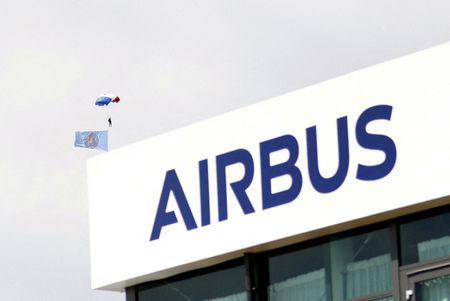BERLIN (Reuters) -Chancellor Friedrich Merz will meet executives from top German automakers later on Thursday without a unified government position on the European Union’s plans to end the sale of carbon dioxide-emitting cars from 2035, he told journalists.
Thursday’s statement backs away from the chancellor’s previous line on pushing Brussels to drop the ban as his SPD coalition partners have struggled with internal divisions.
The government first wants to talk to the car industry about what it needs as well as wait for the outcome of the European Commission’s review of the target due by year-end, Merz said.
“That is why, as agreed, we did not reach a final assessment yesterday evening. Instead, we want to engage in dialogue in order to arrive at an assessment through dialogue,” he said at a press conference with senior cabinet members after discussions on pensions and job benefits that went deep into the night.
COALITION PARTNER WANTS TECHNOLOGICAL FREEDOM
Merz also announced an additional 3 billion euros ($3.5 billion) in subsidies to support electric vehicle purchases by middle- and lower-income households.
Ahead of the meeting, the SPD reaffirmed its commitment to the 2035 climate goals but called for greater flexibility in the transition until then.
“What is needed here is clear technological freedom, rather than a rigid ideological requirement,” said Finance Minister Lars Klingbeil of the SPD at the press conference.
“We still have different paths to get there,” but Thursday’s meeting will be another big step forward, he said.
CAR INDUSTRY WANTS MORE TECHNOLOGY OPTIONS
The EU has set a target for a 100% reduction of CO2 emissions from new cars and vans by 2035, with intermediate 2030 targets, which has been taken to mean the end of the internal combustion engine for new vehicles.
But European automakers, facing stiff competition from China and U.S. tariffs, argue the timeline is unrealistic.
They are urging Brussels to extend compliance deadlines and broaden the definition of acceptable technologies.
Plug-in hybrids and range extenders should remain available to consumers, said Hildegard Müller, head of Germany’s VDA auto association, who will attend the meeting.
Mercedes-Benz CEO Ola Kaellenius also said a certain proportion of highly efficient, electrified combustion engines should be permitted beyond 2035.
“We still need a few side roads,” he told business publication manager magazin in an interview published on Thursday.
($1 = 0.8612 euros)
(Reporting by Andreas Rinke and Christian Kraemer. Writing by Miranda Murray. Editing by Mark Potter)










